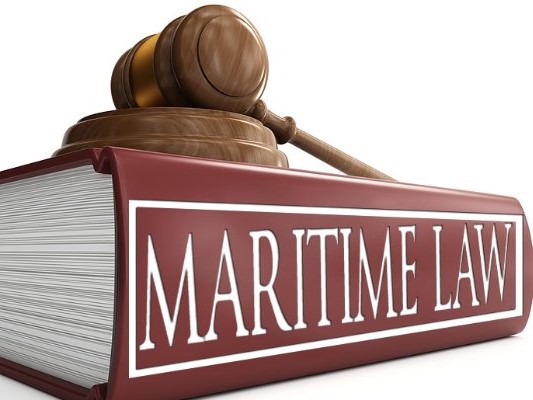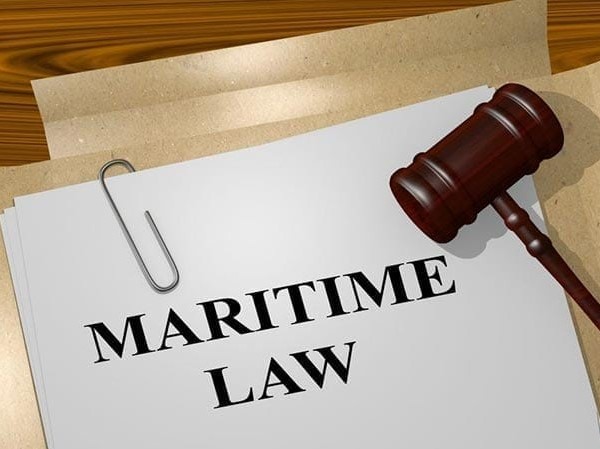UAE Commercial Maritime Law is a comprehensive legal framework that governs the nation's commercial maritime activities. With its strategic location along major international shipping routes and a booming maritime industry, the UAE has established robust regulations to ensure the safe, efficient, and profitable operation of maritime commerce. The law covers various aspects, including vessel registration, maritime safety, cargo claims, marine insurance, liability for accidents, and environmental protection.
Drawing from a combination of federal laws, local regulations, and international conventions, UAE Commercial Maritime Law adheres to global standards and best practices, promoting fair trade, protecting stakeholders' interests, and fostering sustainable growth in the maritime sector. This well-defined legal framework provides clarity and security for businesses involved in maritime commerce, bolstering the UAE's position as a leading maritime hub in the region.
Navigating the intricate waters of UAE Maritime Law is crucial for businesses involved in the maritime industry. Failing to address critical legal issues could spell disaster for your business. Among the key concerns are vessel registration and compliance with safety regulations. Failure to properly register vessels or adhere to international safety standards may lead to penalties, delays, or even vessel arrests, severely impacting your operations and reputation.
Cargo claims and liability for maritime accidents are additional areas of concern. Mishandling cargo disputes or accidents could result in significant financial losses and potential legal liabilities. Inadequate marine insurance coverage may leave your business vulnerable to unforeseen risks. Environmental protection is also paramount, as marine pollution violations can lead to hefty fines and damage to your company's reputation. To safeguard your maritime business, it is imperative to seek expert legal counsel and ensure compliance with UAE Maritime Law to avoid these potential pitfalls and maintain smooth sailing in the competitive maritime industry.
In the face of unforeseen circumstances like a pandemic, businesses encounter significant challenges that require swift and adaptable responses to ensure continuity and survival. The outbreak of a pandemic, such as the COVID-19 crisis, can disrupt supply chains, restrict movement, and cause economic downturns, affecting industries worldwide. To navigate these unprecedented challenges, businesses must implement a strategic and agile approach to address both immediate and long-term consequences.
• Business Continuity Plans: Having a well-prepared business continuity plan in place is crucial to respond effectively to a pandemic. This plan outlines essential steps to maintain operations, protect employees, and ensure the continued provision of goods and services. It involves identifying critical functions, alternative work arrangements, and the use of technology for remote work.
• Risk Assessment and Management: Conducting a comprehensive risk assessment is vital to identify potential vulnerabilities and gauge the impact of a pandemic on your business. Understanding the financial, operational, and reputational risks allows for targeted risk management strategies and contingency plans.
• Adaptation and Innovation: Businesses must be agile and adaptive during a pandemic to respond to changing market dynamics. Embracing innovation and exploring new ways of doing business, such as e-commerce or virtual services, can help companies stay relevant and serve customers despite limitations imposed by the crisis.
• Employee Support and Well-being: The well-being of employees should be a top priority during challenging times. Providing support, communicating effectively, and implementing safety measures to protect employees' health fosters a resilient workforce and strengthens loyalty.
• Financial Management: Sound financial management becomes critical to navigate economic uncertainty. Businesses should review cash flow, reevaluate budgets, and explore available financial relief options or government support programs.
• Supply Chain Diversification: Relying heavily on a single-source supply chain can leave businesses vulnerable during a pandemic. Diversifying suppliers and establishing contingency plans for disruptions in the supply chain can enhance resilience.
• Regulatory Compliance and Legal Considerations: Businesses must stay updated on evolving regulations and legal implications that may arise during a pandemic. Compliance with health and safety guidelines, labor laws, and contract obligations is essential to avoid potential legal repercussions.
• Communication and Reputation Management: Transparent communication with stakeholders, including customers, employees, suppliers, and investors, is vital to manage expectations and maintain trust. Proactively addressing concerns and demonstrating resilience can bolster a company's reputation.
• Collaboration and Industry Support: During challenging times, collaboration within the industry and with relevant authorities can lead to collective solutions and advocacy for business support.
• Long-Term Planning and Scenario Analysis: Looking beyond the immediate crisis, businesses should conduct scenario analysis to understand potential future developments. Developing long-term strategies that account for varying outcomes can help steer businesses through uncertainty.
While a pandemic presents formidable challenges, it also offers an opportunity for businesses to learn, adapt, and emerge stronger. By proactively addressing these unforeseen circumstances with resilience, flexibility, and innovation, businesses can navigate the turbulence of a pandemic and position themselves for growth and success in the post-pandemic world.


The maritime industry faces various security threats, including kidnapping and pirate activities at sea, particularly in regions known for piracy incidents. These threats can jeopardize the safety of crew members, cargo, and vessels, and have severe implications for businesses involved in maritime trade. To mitigate these risks and ensure the safety of maritime operations, companies need to implement comprehensive security measures and adhere to international best practices.
• Risk Assessment and Route Planning: Conducting thorough risk assessments before embarking on a journey helps identify high-risk areas and allows for informed decision-making. Companies should plan routes that avoid known piracy hotspots and consult maritime security advisories.
• Security Personnel and Training: Employing trained and experienced security personnel on board vessels can act as a deterrent to pirate activities. Crew members should also receive comprehensive training on how to respond to security threats and follow best practices to enhance onboard security.
• Use of Technology: Utilizing modern technology, such as radar systems, AIS tracking, and security cameras, enhances situational awareness and provides early warnings of potential security threats.
• Safe Anchoring and Berthing: When anchoring or berthing at ports, companies should choose safe locations and follow recommended security procedures to prevent unauthorized access to the vessel.
• Best Management Practices (BMP): BMP, developed by the shipping industry and naval forces, provides guidelines for preventing and responding to piracy attacks. Companies should implement BMP measures, including the use of razor wire, high-pressure hoses, and night-time navigation precautions.
• Vessel Hardening: Hardening vessels involves fortifying the structure to withstand piracy attempts, such as installing secure citadels and anti-piracy barriers.
• Communication and Reporting: Establishing robust communication protocols with relevant authorities, naval forces, and security agencies ensures timely reporting of security incidents and enables prompt response and assistance.
• Cooperation and Industry Partnerships: Collaborating with other industry stakeholders, government agencies, and international organizations fosters a collective effort to combat piracy and enhance maritime security.
• Kidnapping Prevention and Response: Educating crew members on kidnapping risks and guiding kidnapping prevention measures can help reduce vulnerabilities. Companies should also have a well-defined response plan in case of a kidnapping incident.
• Engagement with Maritime Security Companies: When operating in high-risk areas, companies may engage the services of reputable maritime security companies that specialize in anti-piracy operations and offer armed guards or escort vessels.
By adopting proactive security measures and promoting a culture of safety, businesses can mitigate the risks of kidnapping and pirate activities at sea. Prioritizing the well-being of crew members, safeguarding assets, and adhering to international security protocols are essential steps toward ensuring a secure and resilient maritime operation.
When your ship is in a foreign country, the applicable laws will depend on several factors, including the flag state of the vessel, the location of the port, and any relevant international conventions or treaties. Foreign-flagged vessels typically fall under the jurisdiction of their flag state's laws, known as the "flag state jurisdiction." However, while in a foreign port, the vessel may also be subject to certain local laws and regulations, such as port and customs regulations.
Additionally, international conventions, such as the United Nations Convention on the Law of the Sea (UNCLOS) and various regional agreements, can play a role in determining legal rights and obligations while in foreign waters. Shipowners, operators, and crew members must be aware of the legal landscape in the foreign country to ensure compliance with applicable laws and regulations and address any legal matters that may arise during the vessel's stay in a different country.
In the event of machinery damage concerns on your vessel or in your maritime operation, immediate action is crucial. Prioritize the safety of your crew and vessel by taking necessary precautions and securing the area. Assess the extent of the damage and report the incident to the relevant authorities, such as the vessel's flag state administration, the port authorities, or the vessel's management company. Depending on the severity of the damage, consider engaging qualified marine engineers or technicians to conduct a detailed inspection and recommend appropriate repairs. Maintain clear communication with all relevant stakeholders and keep records of the damage, inspections, and repair processes. A timely and thorough response to machinery damage concerns ensures the safety and integrity of your vessel and helps prevent further complications or potential accidents.
When assessing insurance claims and losses, it is essential to follow a systematic approach to determine the extent of your compensation and damages accurately. Firstly, gather all relevant documentation, including insurance policies, incident reports, and any evidence of the damages or losses incurred. Consult with your insurance provider and notify them promptly about the incident to initiate the claims process. Engage professional assessors or experts, such as surveyors or adjusters, to conduct a thorough evaluation of the damages and estimate the financial losses. Provide comprehensive information and evidence to support your claim, and keep detailed records of all communications and documentation exchanged during the claims process. Working closely with your insurance provider and following their guidelines will help ensure a fair and timely resolution to your insurance claims, allowing you to recover from the losses incurred and resume your maritime operations smoothly.
Harness the expertise of skilled advocates to safeguard and strengthen your maritime business. With in-depth knowledge of UAE Maritime Law and international conventions, our team of legal professionals is dedicated to providing comprehensive legal support tailored to your business needs. Whether you are navigating contractual agreements, addressing security concerns, or seeking guidance on regulatory compliance, our experienced advocates are well-equipped to handle a wide range of maritime legal matters. By partnering with us, you can confidently protect your maritime business from potential risks, ensure compliance with industry standards, and navigate complex legal challenges with ease. Let us be your trusted ally in empowering your maritime business for success in the ever-evolving maritime industry.
As a leading law firm in the UAE, our team of dedicated advocates and legal consultants is committed to providing exceptional legal support and advocacy to protect and empower your maritime business. With extensive knowledge of UAE Maritime Law and international conventions, we offer tailored solutions to address the unique challenges and opportunities in the maritime industry. Our firm is driven by a passion for excellence and a deep understanding of the complexities of the maritime sector, enabling us to deliver strategic and innovative legal solutions that ensure compliance, mitigate risks, and drive sustainable growth for your business. With a focus on client satisfaction, transparency, and professionalism, we are your trusted partner, offering unwavering support to navigate the legal landscape and secure your maritime business's success in a dynamic and competitive global market.